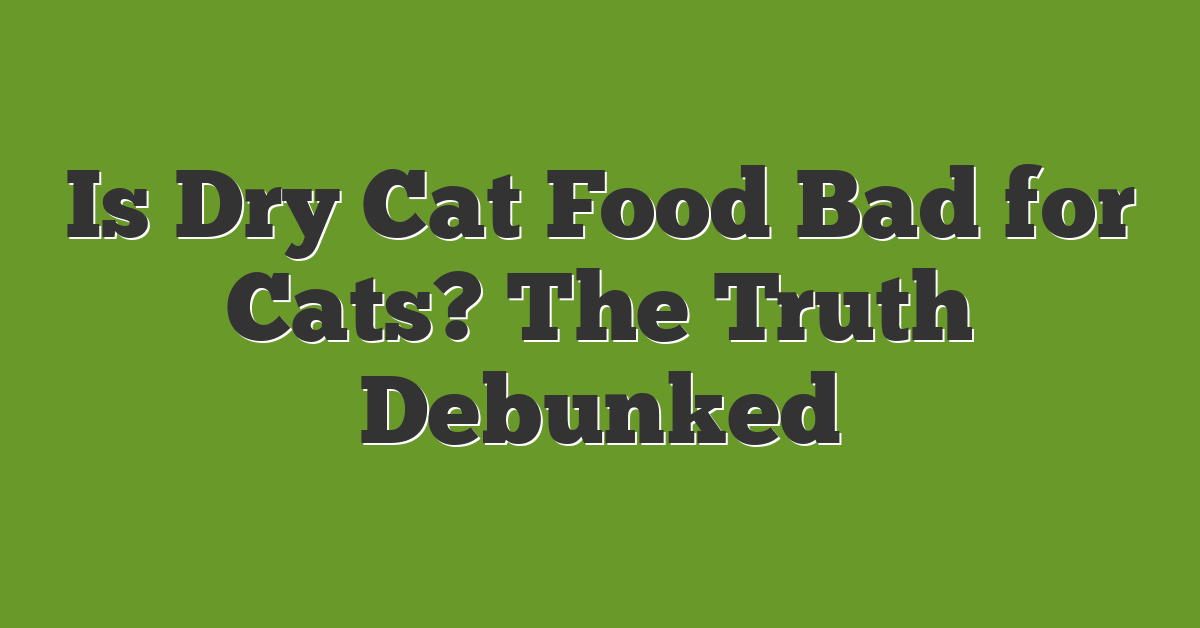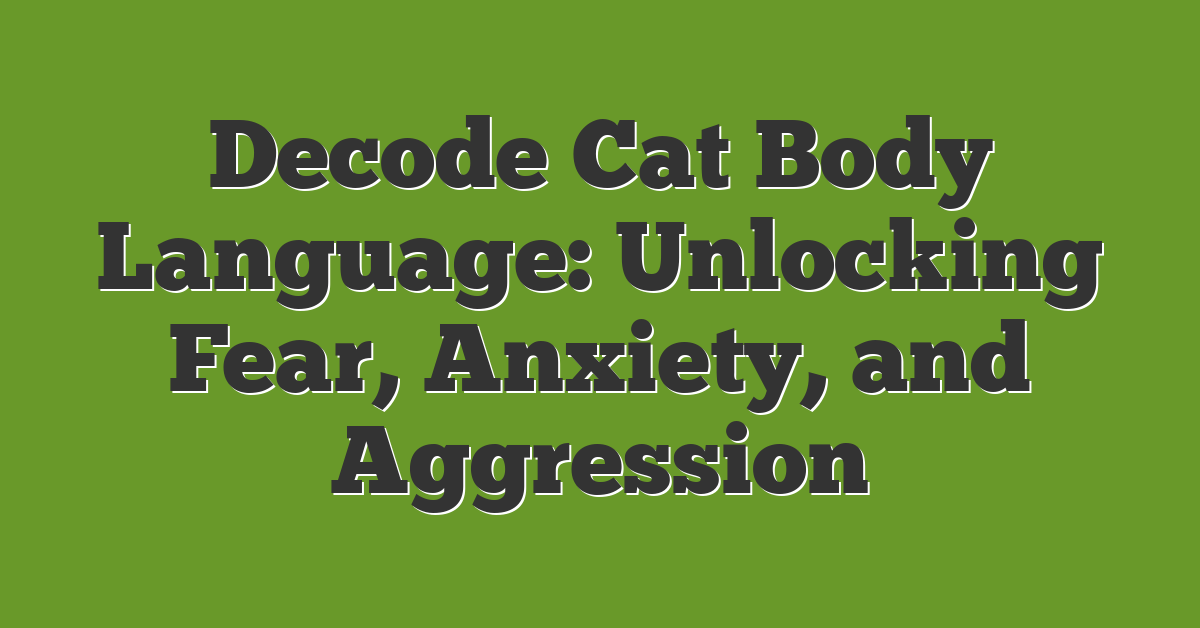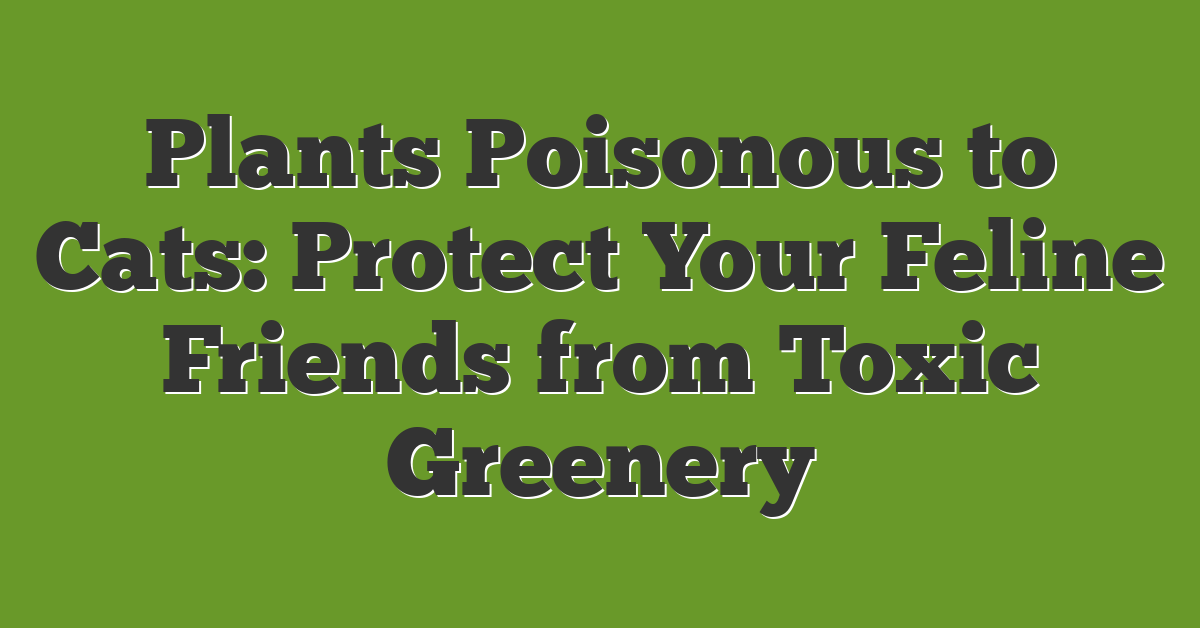The Pros and Cons of Dry Cat Food
As a cat lover, you want the best for your feline friend. You’ve probably heard different opinions about dry cat food and whether it’s good or bad for cats. Let’s take a closer look at the pros and cons of this popular food choice for cats.
Pros of Dry Cat Food:
- Convenience: Dry cat food is easy to store and has a long shelf life. You can simply pour it into a bowl and leave it out for your cat to snack on throughout the day.
- Cost-effective: Dry cat food tends to be more affordable than wet or raw options. If you’re on a budget, it can be a practical choice for providing your cat with essential nutrients.
- Dental health: The crunchy texture of dry cat food can help reduce plaque and tartar buildup on your cat’s teeth. Chewing on dry food promotes good oral hygiene for your feline friend.
- Water intake: Cats have a low thirst drive, and dry cat food contains very little moisture. This can lead to inadequate hydration, which is not ideal for their overall health. It’s important to encourage your cat to drink plenty of water when feeding them dry food.
- Potential for urinary issues: Some cats are prone to urinary tract problems, and a diet high in dry cat food may contribute to the formation of bladder stones or crystals. Make sure your cat has access to fresh water and consider incorporating wet food into their diet to help increase their hydration.
- Quality ingredients: Not all dry cat foods are created equal. Some lower-quality brands may contain fillers and artificial additives that are not beneficial for your cat’s health. It’s important to carefully read the labels and choose a dry cat food that contains high-quality protein sources and minimal fillers.
When it comes to deciding if dry cat food is right for your furry friend, consider their individual needs, health conditions, and preferences. Remember, consulting with your veterinarian is always a good idea. They can provide guidance tailored to your cat’s specific needs, helping you make an informed decision about their diet.
Potential Effects of Dry Cat Food on Cats’ Health
As a cat lover, it’s important to be aware of the potential effects that dry cat food can have on your feline friend’s health. While dry cat food offers convenience and affordability, it’s essential to understand both the benefits and drawbacks it can have on your cat’s well-being.
1. Lack of Moisture: Dry cat food typically has a low moisture content, which can pose hydration challenges for your cat. Cats naturally have a low thirst drive, and rely on their food to help meet their hydration needs. Without sufficient moisture intake, cats can become dehydrated, leading to potential health problems such as urinary tract issues.
2. Limited Nutritional Variety: Dry cat food may provide a limited variety of nutrients compared to wet or raw food. Essential nutrients, such as proteins and vitamins, are necessary to support a cat’s overall health and well-being. Some dry cat food formulas are formulated to provide complete and balanced nutrition, but it’s important to carefully read the labels and choose a high-quality brand.
3. Dental Health Benefits: On the positive side, dry cat food can contribute to maintaining good dental health. The crunchiness of the kibbles helps reduce plaque and tartar buildup, promoting healthier teeth and gums. However, it’s important to note that dry food alone is not a substitute for regular dental care, such as brushing your cat’s teeth or providing dental treats.
4. Individual Cat’s Needs and Preferences: Keep in mind that each cat is unique and may have specific dietary requirements or preferences. Factors such as age, weight, activity level, and overall health play a role in determining the best food for your cat. Consulting with a veterinarian can help you understand your cat’s specific needs and ensure that they are receiving the appropriate nutrition.
While dry cat food can be a convenient and cost-effective option, it’s important to weigh the potential effects it can have on your cat’s health. Consider incorporating wet food or raw food into your cat’s diet to help increase their moisture intake and provide a wider range of nutrients. Ultimately, understanding your cat’s individual needs and consulting with a veterinarian will help you make the best choice for their overall well-being.
How to Choose the Right Diet for Your Cat
When it comes to choosing the right diet for your cat, there are a few things you should consider. As a cat lover, enthusiast, and expert, I understand that your furry friend’s nutrition is important for their overall health and well-being. Here are some tips to help you make the best choice for your cat:
- Consult with a veterinarian: Every cat is unique, with different dietary needs and health considerations. Before making any changes to your cat’s diet, it’s important to consult with your veterinarian. They can provide you with personalized recommendations based on your cat’s age, weight, and any specific health concerns.
- Consider your cat’s age: Cats have different nutritional requirements depending on their age. Kittens, for example, need a diet that supports their growth and development, while adult cats require a balanced diet to maintain their health. Senior cats may have specific dietary needs to support their aging bodies.
- Look for a complete and balanced diet: A good cat food should be labeled as “complete and balanced”. This means it contains all the essential nutrients your cat needs to thrive. Check the ingredients list to ensure that high-quality protein sources, like meat or fish, are listed first.
- Consider your cat’s preferences: Just like humans, cats have their own personal preferences when it comes to food. Some cats may prefer dry kibble, while others enjoy wet food. It’s important to find a diet that your cat enjoys and will eat consistently.
- Take your cat’s health into account: If your cat has any specific health conditions, such as allergies or digestive issues, you may need to choose a specialized diet. Your veterinarian can help you identify any dietary restrictions or specific ingredients to avoid.
| Facts/Stats |
|---|
| – Kittens need a diet that supports their growth and development. |
| – Adult cats require a balanced diet to maintain their health. |
| – Senior cats may have specific dietary needs to support their aging bodies. |
| – A good cat food should be labeled as “complete and balanced”. |
- High-quality protein sources, like meat or fish, should be listed first
Debunking Myths About Dry Cat Food
As a cat lover, you may have heard some rumors about dry cat food. People may claim that it’s bad for cats, but let’s debunk those myths and get to the truth.
Myth 1: Dry cat food is bad for cats because it causes dehydration.
Contrary to popular belief, dry cat food doesn’t dehydrate your feline friend. Cats have a natural instinct to drink water, and as long as they have access to fresh water, they can stay hydrated. In fact, some cats actually prefer dry food and still maintain proper hydration.
Myth 2: Dry cat food leads to urinary tract problems.
While it’s true that cats are prone to urinary tract issues, it’s not solely because of dry cat food. The main cause is inadequate water consumption, which can happen with any type of food. Encouraging your cat to drink more water and providing wet food as a supplement can help prevent these problems.
Myth 3: Dry cat food causes obesity.
Obesity in cats is a result of overeating and limited exercise, not solely because of dry food. It’s important to monitor your cat’s portion sizes and encourage regular playtime to keep them active and healthy. Choose a high-quality dry cat food that provides the necessary nutrients without excessive calories.
Myth 4: Cats prefer wet food over dry food.
While every cat is unique and may have individual preferences, many cats enjoy the crunchy texture and convenience of dry cat food. It’s essential to offer a variety of food options, including wet food, to accommodate your cat’s preferences and provide a balanced diet.
Myth 5: Dry cat food lacks nutritional value.
Dry cat food can be a complete and balanced diet for cats. Look for brands that are labeled as “complete and balanced” and contain high-quality protein sources as the primary ingredients. These foods are formulated to provide all the essential nutrients that cats need for optimal health.
Dry cat food is not inherently bad for cats. It’s crucial to consider your cat’s individual needs and preferences when choosing their diet. Consult with your veterinarian to determine the best food options for your feline friend.
Conclusion
Choosing the right diet for your cat is essential for their overall health and well-being. In this article, we have discussed the importance of consulting with a veterinarian to ensure that you are meeting your cat’s specific nutritional needs. We have also debunked common myths about dry cat food, such as it causing dehydration, urinary tract problems, and obesity.
It is important to monitor portion sizes and provide a balanced diet to prevent overfeeding and maintain a healthy weight. Dry cat food can be a convenient and complete option, but it is crucial to consider your cat’s individual needs and preferences. Consulting with a veterinarian will help you determine the best food options for your furry friend.
Remember, providing your cat with a nutritious diet is just one aspect of their overall care. Regular veterinary check-ups, exercise, and mental stimulation are equally important for their overall well-being. By taking a holistic approach to your cat’s health, you can ensure that they live a happy and healthy life.
Frequently Asked Questions
Q: How do I choose the right diet for my cat?
A: Consult with a veterinarian to determine the best diet for your cat’s specific needs.
Q: What are the nutritional requirements for kittens?
A: Kittens require a diet that is high in protein, calcium, and other essential nutrients for growth and development.
Q: What are the nutritional requirements for adult cats?
A: Adult cats need a balanced diet that includes protein, fats, carbohydrates, vitamins, and minerals to maintain their overall health.
Q: What are the nutritional requirements for senior cats?
A: Senior cats may require a diet that is lower in calories and fat to prevent weight gain and to support their aging bodies.
Q: Is dry cat food bad for cats?
A: Dry cat food can be a complete and balanced diet for cats, but it’s important to monitor portion sizes and provide a balanced diet overall.
Q: Does dry cat food cause dehydration?
A: Dry cat food does not cause dehydration in cats. However, it’s important to provide access to fresh water at all times.
Q: Does dry cat food cause urinary tract problems?
A: Dry cat food does not directly cause urinary tract problems, but it’s important to ensure that your cat stays hydrated and provide them with a balanced diet.
Q: Does dry cat food cause obesity?
A: Overfeeding and lack of exercise are the main causes of obesity in cats, rather than dry cat food itself. Monitoring portion sizes is key to preventing obesity.
Q: What should I consider when choosing cat food?
A: Consider your cat’s age, health condition, and preferences when choosing cat food. Consulting with a veterinarian is recommended for determining the best food options.

















